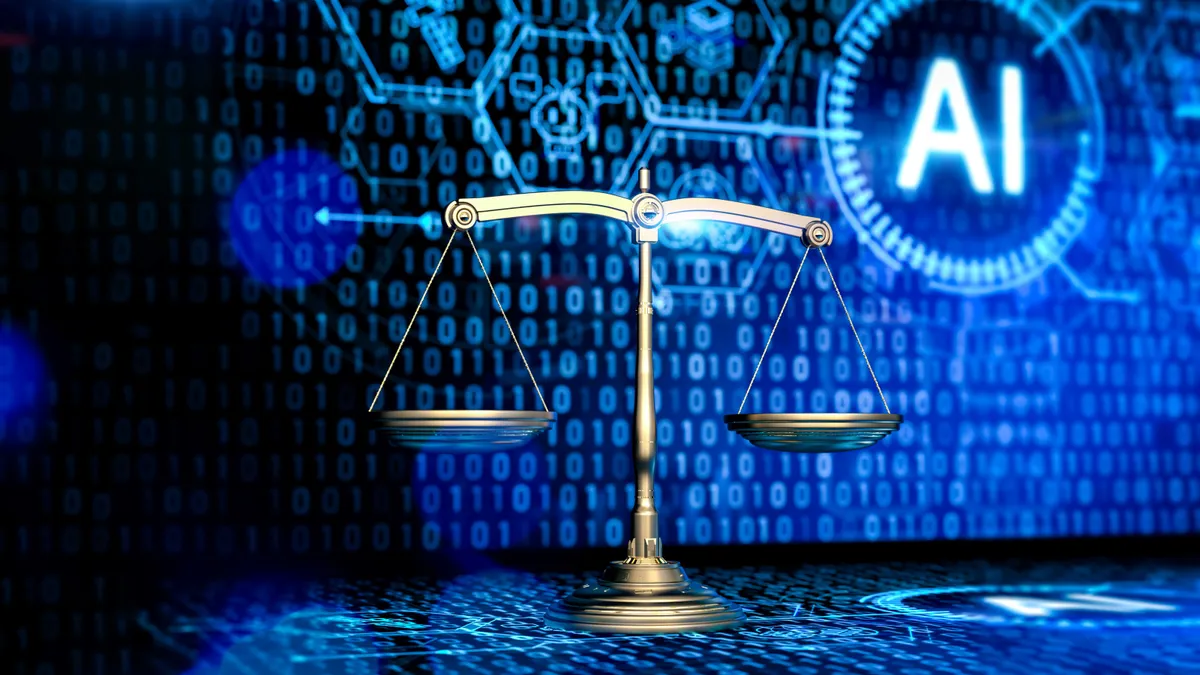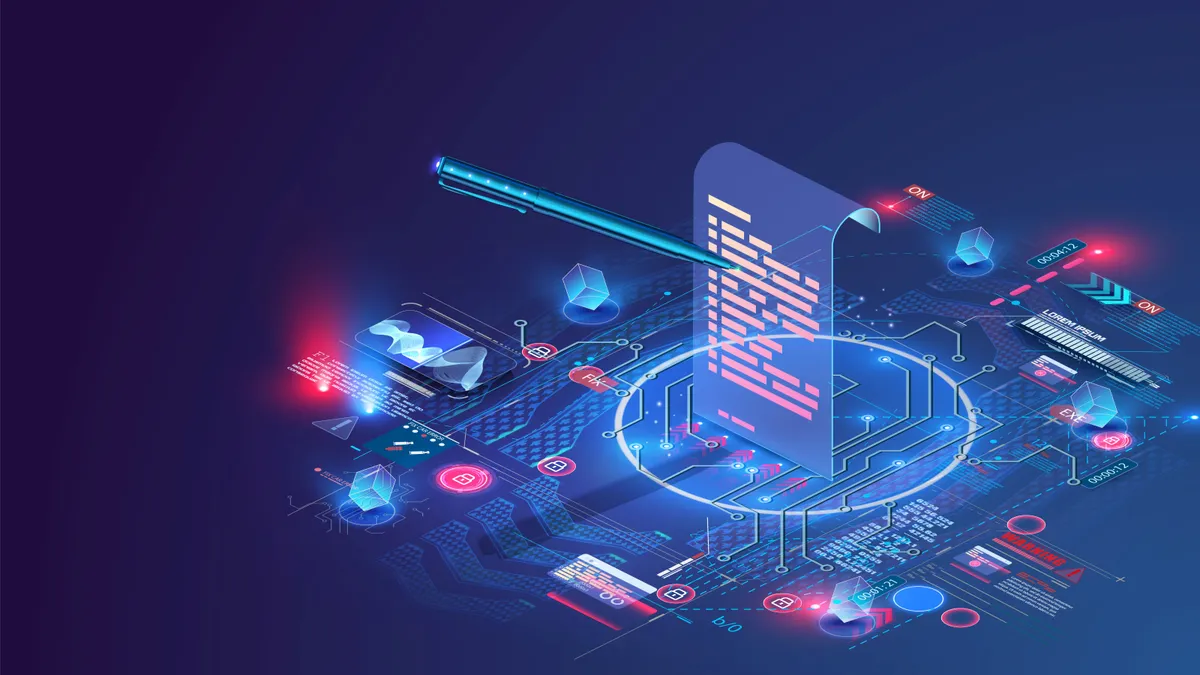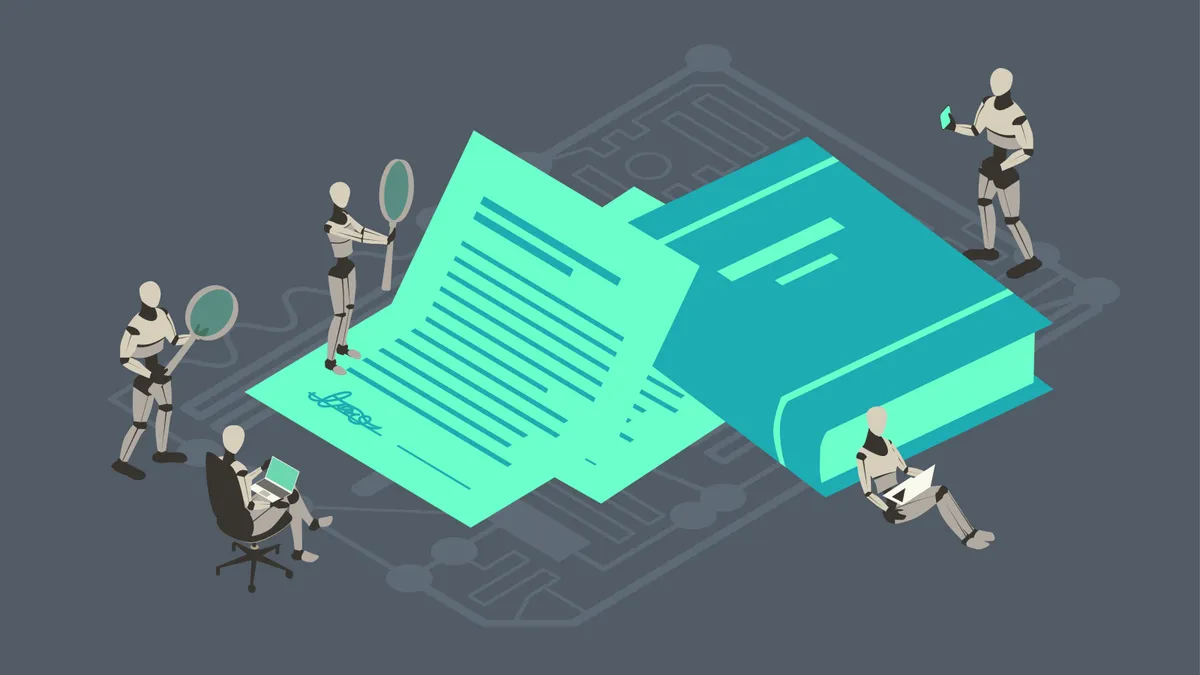Everything you thought you knew about being a lawyer is about to change.
For in-house attorneys, that’s one of the profession’s current shibboleths as widespread trials of artificial intelligence tools shift to financially-driven adoptions in their legal departments and outside law firms.
Helping lead this transition are companies like ContractPodAi, a legal tech provider that sells contract lifecycle management tools and a GenAI-powered legal assistant.
The London-based company announced the hiring last month of Tanja Podinic as senior vice president of AI programs. Podinic, an Australia native and former litigator, has transitioned her career from the courtroom to work as a technology advisor for in-house counsel and law firms to her role as an AI evangelist.
After working as a lawyer in Sydney, Podinic ended up with Dentons in London as an assistant general counsel and then as a technology specialist for the firm and its clients. She continued her GenAI legal journey at the global consulting firm PricewaterhouseCoopers before moving to ContractPodAi.
Legal Dive spoke with Podinic about the transformative nature of AI, including the financial risks to lawyers’ billing models and how it will force general counsel and chief legal officers to consider how they’ll use the time AI is expected to free up for the lawyers on their teams when they no longer have to do administrative tasks and low-level work.
Editor’s note: Legal Dive’s conversation with Podinic has been edited for clarity and length.

LEGAL DIVE: How did you find yourself as an executive at a legal AI firm?
TANJA PODINIC: I saw the product, I saw the people, and it was like, this is a no brainer. If I ever was going to jump across to a vendor to work on a product, it would be this and at this point. I genuinely believe that in 10 years time we’ll be looking back at this period as the key moment when being a lawyer completely changed. We no longer did a lot of the administrative tasks that lawyers do, and we really moved into more strategic thinking.
When you were making this transition, did you consider other generative AI legal products as a place to work?
I mostly connected with the team at ContractPodAi because it’s a company of lawyers going, “How can we build a product that lawyers will use?’ How can we build something that sits beside a lawyer that seamlessly integrates to their day to day?” And I felt that the modules that they were coming up with, and the way those modules were being developed, was quite intuitive. I thought, OK, when I was practicing, this is a product I would have loved.
In 10 years this will be seen as the early days of GenAI legal work. Could you unpack that in terms of the strategic work? My understanding is that much of the tedious work is at the junior associate level, and partners don’t really do much of that work, and may not care if it’s completed by software or a 23-year-old associate. How will lawyers define the role of the associate or junior associate?
I started off as a litigation lawyer. Fifteen years ago, part of my job was literally to sit in an office and go through boxes of pages, separating the relevant information into one pile. And then e-discovery came along. You’d be forgiven for saying, well, if e-discovery comes along and it automates all of this for me, and I can understand the information that I have at hand very quickly and very easily, then there’d be fewer litigation lawyers in the future, right? But in reality there are more litigation lawyers. It’s just that what we’ve done is we’ve adapted to the technology and lawyers are doing different tasks. So now I think it’s getting to a point where we’ve sped up that process in the last decade. I don't think anyone really knows where this is going because we don't really know where generative AI is going to end when it comes to legal.
I think lawyers at the moment need to almost look inward and say, What am I doing, or what can I do, that a piece of tech that is available to me now can’t do? And in order to make that distinction, you need two main things. You need to understand what the technology does and its capabilities, and you need to have enough awareness of what you’re doing to make that distinction and differentiation. There are so many things that lawyers are good at that machines can’t do. It’s about understanding where our strengths are versus the strengths of the technology, and how to marry that up, with the key being, How do we solve a client’s problem? That's the core of it. What skill sets can we bring and the tech can bring to make the most effective solution?
Once these AI tools are sorted, and they do the job in a reliable way, does AI cover the overstretched attorney who has too much work? Do you foresee fewer lawyers, or is it just that they’ll be less overworked than they are today?
It really goes back to the mindset of lawyers. I feel like we have this cultural affiliation that working hard means you're a good lawyer, and working long hours is worn as a badge of honor.
I think it’s more of a human question rather than a technology question. How will our mindset change, if at all, knowing that we can now take away some of the work that the lawyers are doing and give that to technology? It really depends on the cost pressures, but equally, it depends on the expectation of the general counsel or the legal team. If the expectation is, well, now you can get through more work, than absolutely the work environment may stay the same, and maybe lawyers will continue to be overworked. But it may actually be more difficult, because now they need to do strategic, sophisticated work seven and a half hours a day, rather than some sophisticated strategic work mixed in with some mundane administrative tasks.
I think that’s more of a question in terms of how are we going to see the future of the legal profession and what we want our lawyers to be doing. And it’s really interesting because, if we say we’re just overworked, well, here is an efficiency tool that’s going to help you. Are we then going to stop and say, “Great, now we’re efficient, and my lawyers are working nine to five.” Or is it, “Great, now we’re efficient at the things that we were doing, so let’s pile on more work?”
I’ve heard the sentiment that AI adoption may take longer than some expect because lawyers are reluctant to try new technology. Do you think this is true or will the economic imperatives be such that lawyers will follow edicts from their GC or firm?
Partners and senior management and lawyers cannot behave the way that they behaved 15, 20 years ago. We’ve seen that kind of cultural shift, and I don't think we’re going backwards. The notion that lawyers don’t like technology, or they’re slow to adopt [will no longer hold]. There are several factors at play with that. One of the key ones is not seeing the benefit of the tech. Technology, and having used so many different legal tech products, I found that frustration built up. I just went through this process. I tested the tool. It doesn't do what it said it did, or it actually isn’t very helpful. And so there’s this negative affiliation for some lawyers with legal tech, because they’ve tried it, they’ve tested it, it hasn’t worked, and they don’t have much patience with things that don’t work. They have so much other work to do, they have these billable hours. And when it doesn’t work, they kind of retreat and go, I'm not testing that again. What we’re trying to do at Contractpod is create products that sit seamlessly by the lawyer so it will become part of their work, just like the iPhone is an extension of 99.9% of us. I couldn't imagine my life without the iPhone. But yet, 10 years ago, or 15 years ago, it just didn’t exist. And yet we were doing completely fine. I think that’s where the legal industry is going to go.
Where does the industry stand now in terms of the AI investment that everybody says confidently is coming? Is it early days for most, or is it already budgeted and being implemented?
For law firms, it depends on their client base and their competitive advantage. If the law firm is doing mid-level to low-level work, and that’s where their bread and butter is, then they have no choice but to adapt because the pressures are being pushed down by the general counsel and their clients. If it’s high-level strategic work, and we are a handful of lawyers who have the capabilities of doing that, that's not going away. They probably aren’t spending as much money or time or effort, perhaps because the technology isn’t there, but also because that fear of competition is not as heavy.
But you read all the time that law firms are testing this tool or that tool. I think they have to do something because this technology is so democratized that, if they’re not doing anything, their clients will be the ones banging on their door immediately saying, “I know that this can summarize a document really quickly and easily. You can’t charge me for summarization three or four hours anymore.”
Is AI driven by cost for most lawyers?
Cost, but also disruption to their business. If I was able to charge £1000 or £10,000 for a discovery exercise or a summary or report, and that was two days worth of work, this particular tool means that I can do it within a couple of hours. Well, then what does my practice look like?
If you have particular areas in law which are built upon the more routine work, that routine work faces the biggest disruption. If I adopt this now, and my bread and butter is, say, lease agreements, and I’ve been drafting them from scratch, and now there’s a product that’s coming and doing that, then the reality is that you can’t charge much anymore. If you can't charge that much anymore, how are you going to meet your threshold to bring in your budget for the year, and how will you retain the profits and the revenue for the company? So, as products like redline come in, and you have the ability to quickly edit the first pass of a contract for a client, this is going to bring that cost down. Well, what do I do now to bridge that gap? What other things can I offer my clients? They operate on this partnership model where you mostly charge by the hour, and if you're no longer going to be charging by the hour, well, how do we charge? How do we make a profit?
Do you have these discussions as part of your role presenting legal AI technology?
I always get these questions. It goes beyond just what a particular tech tool does. I think for us to help the client, it goes back to the client’s problem. And it may be that they think their problem is one thing, but in fact, when you dive deeper, it’s like their problem is resourcing. Let’s address that.
If you’re a general counsel, this technology likely helps your budget. If you’re the outside law firm, you immediately detect the risk and implication to the billing models. Do you talk with firms about the commercial risks of AI for them?
Law firms have a lot of pressure from their clients to do something different, and that’s why we’re seeing law firms adopt this. They probably have a bigger risk of being disrupted than in-house legal departments. In-house legal departments really will stand to benefit from this technology more than they stand to lose from it, because in most cases they’re overworked and under-resourced. And so if you can find a way to manage that workload, whether or not it gets replaced with other things, you’re not really losing out. We don’t often see, Hey, I’m going to take on this tech tool, and therefore I can fire five people, because the (departments) are just so small.



















